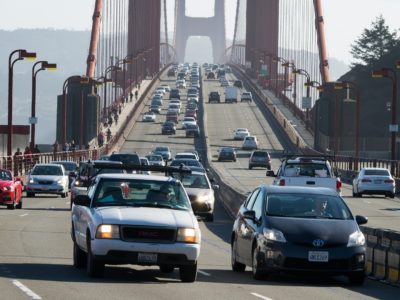Coastal Communities Demand EPA Update Decades-Old Oil Spill Regulations
Written in Collaboration with Camila Gonzalez*

Coastal communities are bracing themselves. Thirty years after the Exxon Valdez oil spill in Alaska, and almost nine years after the BP Deepwater Horizon rig explosion in the Gulf of Mexico, they are facing the threat of another catastrophic oil spill.
The Trump Administration is paving the way. The Bureau of Ocean Energy Management will soon release its five-year outer continental shelf oil and gas leasing plan, reversing Obama-era policies and reopening ninety percent of the nation’s offshore areas to drilling. The Trump Administration’s commitment to offshore drilling is so deep that work on this leasing plan continued through the federal government shutdown earlier this year. And to really help clear industry’s path to offshore drilling, in December the Trump Administration rolled back safety regulations developed to address the conditions that gave rise to the BP Deepwater Horizon spill—the largest in U.S. history. The Administration’s actions, collectively, have teed up another massive coastal oil spill.
In the face of this ramp-up of offshore drilling, coastal communities are grappling with both the threat of another major oil spill and a federal response plan that does more harm than good. The National Contingency Plan (NCP) is the set of federal regulations that governs oil-spill response. The NCP provides for the use of chemical dispersants—highly toxic substances that break oil into smaller particles—based on the assumption that this action enhances the natural biodegradation of oil. The Environmental Protection Agency (EPA) last revised the NCP in 1994, and the provisions governing dispersants are severely outdated. This became glaringly apparent in the aftermath of the BP Deepwater Horizon spill.
After the spill, six million gallons of dispersants were dumped into the Gulf. These substances did not enhance oil biodegradation—they amplified the toxic effects of the spill instead. Dispersant and oil particles spread rapidly through the Gulf waters. Dolphin die-offs, fish kills, and serious deformities in marine organisms followed. This had economic consequences in the Gulf, where tourism and fishing are key industries. Meanwhile, oil-spill response workers, fishers, and coastal residents exposed to dispersants are still suffering from respiratory disorders, pulmonary diseases, cardiac diseases, seizures, rashes, neurological problems, and cancer.
After the BP spill, public outcry and a citizen petition pushed EPA to begin the process of revising the NCP’s dispersant provisions. The Clean Water Act requires EPA to periodically update the NCP in response to scientific and technological developments. 33 U.S.C. § 1321 (d)(3). The Act mandates these updates to ensure that the NCP facilitates “effective action” that “minimize[s] damage” from oil spills. 33 U.S.C. § 1321 (d)(2). To address lessons learned from the aftermath of BP spill, EPA issued a proposed rule to amend the NCP in January 2015. Since the comment period closed in April 2015, however, EPA has not taken any action on this rulemaking.
By allowing this NCP rulemaking to languish in limbo while charging full steam ahead with offshore leasing, the Trump Administration demonstrates the degree to which it values oil exploration over the health and welfare of coastal communities. Fearful that they are running out of time as offshore drilling resumes, a coalition of coastal advocacy organizations (ALERT, Cook Inletkeeper, and Alaska Community Action on Toxics), a Louisiana commercial fisher, and an Iñupuit community leader have joined forces to compel EPA to address the shortcomings of the NCP’s dispersant provisions. Last Friday, members of this coalition, represented by the Berkeley Environmental Law Clinic, gave EPA notice that unless there is immediate action to revise the NCP, they will take EPA to court to make sure this happens.
* Camila Gonzalez is a second-year student at Berkeley Law and part of the Clinic team working on this matter.
Reader Comments
One Reply to “Coastal Communities Demand EPA Update Decades-Old Oil Spill Regulations”
Comments are closed.






In addition to the concerns expressed in this article. the Administration’s action plan demonstrates a disconnect between Trump’s Department of Commerce and its goal of increasing domestic production of fish and shellfish through aquaculture. Today 90% of shellfish consumed in this country is imported. Efforts to reduce that figure are underway in California. The Port of San Diego and the Ventura Port District, to name just two, are working to develop offshore projects.
Without the protections demanded by this article, what guarantee would a sustainable shellfish project have in the Santa Barbara Channel?